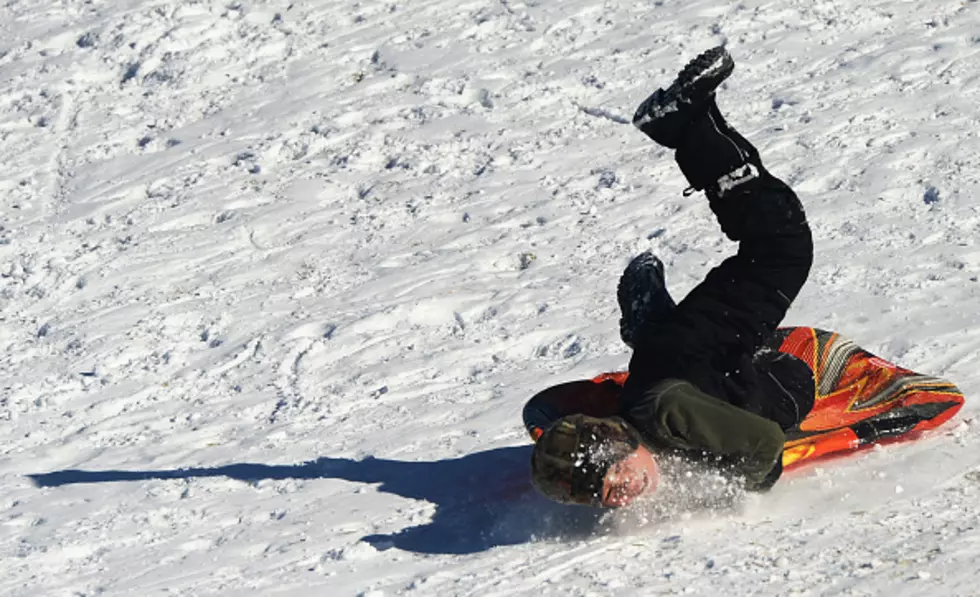
Will Sledding Soon Be Banned?
I REALLY wanted to go snowboarding this weekend, but the paycheck was already spent, so I had to resort to doing something FREE. So, I grabbed my sled. It has been awhile since I had that much fun, especially introducing my son to the powers of gravity. But, in a society filled with lawsuits, some lawmakers are trying to outlaw the winter past-time.
According to CBS MoneyWatch
More municipalities are taking the step of banning the time-honored winter pastime, citing legal costs and insurance payouts that amount into the tens of millions. While it may seem as if these cities are channeling the spirit of Ebenezer Scrooge, they argue that the benefits don't outweigh the risks of sledding, which lead to thousands of injuries annually.
Take Dubuque, Iowa, a hilly city that's dotted with 50 parks that entice its residents to take advantage of winter activities. But the city council is moving forward with a plan to ban sledding in all but two of the parks, citing the sport's inherent risks and the city's lack of ordinances that provide immunity to lawsuits related to sliding down on a snowy slope.
"Sledding is a risky activity. Anyone that sleds knows that," Dubuque city attorney Barry Lindahl and leisure services manager Marie Ware wrote last month in a letter proposing the ban. "In conversations about sledding it is not unusual for people to talk about their accidents or near accidents along with the fun times they've had."
Their letter highlighted six-figure legal settlements that hit other wintry municipalities, including Omaha, Nebraska, and Boone, Iowa. In the Omaha case, the city paid $2.4 million to a family after their daughter's sled hit a tree, leaving her paralyzed from the chest down. In Boone, the city council agreed to pay $12 million after a sledder hit a concrete cube at the hill's base.
While those accidents and legal settlements may be severe, it's not uncommon for sledders to come off a hill with an injury. A study from the Center for Injury Research and Policy of The Research Institute at Nationwide Children's Hospital found that more than 229,000 children and teenagers were treated in emergency rooms for sledding-related injuries between 1997 to 2007.
About one-quarter of the injuries are fractures, while bruises and cuts comprise another 25 percent of reported sledding injuries. But the study also found that the head was the most commonly injured body part, and that collisions were more likely to result in a traumatic brain injury.
Other cities that have banned sledding include Montville, New Jersey, and Lincoln, Nebraska, The Associated Press notes.
Officials in Paxton, Illinois, took their efforts to an extreme, going so far as to actually remove a hill in a a city park rather than risk injury and lawsuits from a sledding accident.




![The Aftermath From Last Night’s Wild Storm In Missoula [PHOTOS]](http://townsquare.media/site/117/files/2024/07/attachment-Copy-of-3-Frame-Copy1.jpg?w=980&q=75)